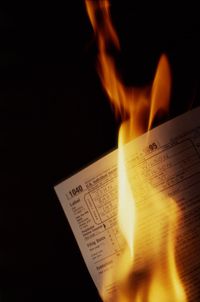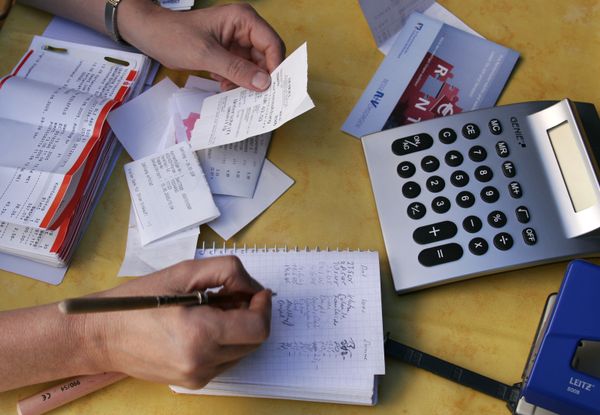The American tax system is a huge machine with a tax code that seems more complex than rocket science. Many of us have come to dread April 15th because of its connection to the Internal Revenue Service (IRS). In fact, taxes have always left a sour taste in the mouths of American citizens. This national hatred for taxes dates back to the tax burden placed on the American colonies by Great Britain. Colonists were taxed for every consumer good, from tea and tobacco to legal documents. This "taxation without representation" led to many revolts.
While a revolt isn't imminent today, many of us have imagined a more personal revolt. Have you ever wondered what exactly would happen if you failed to file and pay your taxes one year?
Advertisement
Although most Americans tend to think about the tax system and the IRS only as the month of April approaches, the tax process is actually never ending. By law, employers are required to withhold employment taxes from their employees' earnings. People who are self-employed are still responsible for withholding taxes from their own wages.
In fact, the income tax process begins when a person starts a new job. The employee and employer agree on compensation, which will be figured into the gross income at the end of the year. One of the first things an employee has to do when hired is fill out all of the tax forms, including a W-4 form. The W-4 form lists all of the employees withholding allowance information, such as the number of dependents and childcare expenses. The information on this form tells an employer just how much money it needs to withhold from a persons paycheck for federal income tax. The IRS suggests that you check this form each year, as your tax situation may change from year to year.
As the employer collects the withheld money, it deposits the money into an approved financial institution. A report is filed on a quarterly basis to notify the IRS of how much money has been withheld from each employee's salary. Another reporting is filed at the end of the year as well.
Advertisement


